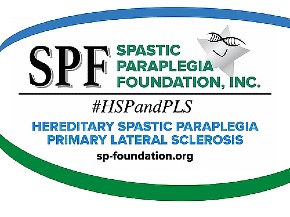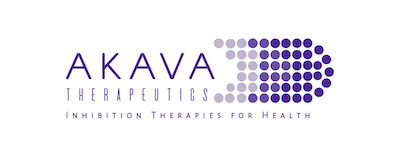After weeks of controversy, Biogen (BIIB) has agreed to provide an experimental drug for combating ALS to a small group of very sick patients under a so-called expanded access program. But the move may come too late for the woman who pushed the company to take this step.
The decision follows sustained pressure by ALS patients, notably Lisa Stockman Mauriello, a health care communications executive who has a rare and fast-moving form of the neurological disease. This subset of patients typically has a very short life span, but no treatment options. So with help from supporters, she mounted a high-profile campaign to convince Biogen to provide access to its drug as quickly as possible.
But Biogen repeatedly refused, citing concerns that providing the drug to patients outside of an ongoing study would be unfair to participants who were given a placebo. As a result, the campaign not only cast an uncomfortable spotlight on Biogen, but also highlighted the quandaries surrounding expanded access programs in an era when innovative new medicines are spurring patients to become more assertive.
“Answering questions about access for new medicines outside of clinical studies is neither simple nor fast. Among the ethical imperatives in any access program are assuring that all patients receive equal treatment and priority and preserving the integrity of ongoing studies,” the company wrote in a statement. “Addressing these imperatives takes time and requires careful thought.”
In what amounts to a Solomon-like approach, Biogen will offer its drug, called tofersen, to these patients starting in July after a key, late-stage study is complete and participants are no longer on a placebo. Once the biotech determines the study data shows the drug is safe and effective, the program will be opened to a broader group of patients with the gene mutation. This is expected to occur by this coming fall.
The gesture was greeted with decidedly mixed reactions.
Stockman Mauriello, 51, who was diagnosed in February with the rare form of ALS and given only a few months to live, issued a statement that underscored both frustration and gratitude.
“We are not even sure how to feel right now. We are pleased that our efforts have contributed to some people with ALS getting access to tofersen faster than they would have otherwise. Unfortunately, it still falls short for patients like me who are deteriorating rapidly,” she wrote. “For us, this is a death sentence because we most likely will not make it to mid-July when the tofersen expanded access will start, and if we do, we will be in such bad shape that we may not see any benefit.”
She and her husband, along with other supporters, had attempted to convince Biogen to add this small subset of patients to the trial and randomize them. That would allow some patients to receive the drug while others would be given a placebo. In this way, they argued, Biogen would avoid ethical questions and at least some patients with the rare form of ALS might benefit.
“This is not going to help the dying patients. They’ll be dead before mid-July. I don’t mean to sound callous, but this is the uncomfortable reality,” her husband, Robert Mauriello, told us. “She can’t walk to the bathroom by herself. If she’s deteriorated in the last couple of months, where will she be in three months? I think its untenable and unethical to have people wait that long.
“Randomizing this group for this acute need, at least until July when no one is on placebo, would be a tweak to their plan that would get around their concerns and save a dozen lives,” he continued. “Lisa may get a placebo. That could certainly happen. It’s in G-d’s hands then. But I’d rather have a two out of three chance of getting the drug then getting a zero chance.”
For its part, the ALS Foundation said in a statement that “all companies should have expanded access programs to help people with ALS access experimental treatments and this is a positive step forward. These treatments are still experimental, however, and we do not know if they work. What is most important is that we get effective treatments to everyone with ALS as soon as possible. That means we need more and faster clinical trials and a faster Food and Drug Administration.”
The episode underscores some of the ongoing challenges posed by expanded access programs, which are sometimes referred to as compassionate use. The process requires a physician to submit a request to a drug company, and for regulators to sign off on providing a medicine.
Historically, the FDA has approved 99% of all requests, but critics complained the program is cumbersome and arbitrary. In 2018, Congress passed the “right-to-try” law, which does not require a drug maker to seek endorsement from the FDA. But drug makers — which may worry about supplies or the impact on clinical trials — still are not required to provide a medicine.
This particular case highlights some critical unresolved issues about the timing of an expanded access program when patients have a very fast-moving disease, according to Holly Fernandez-Lynch, an assistant professor of medical ethics at the Perelman School of Medicine at the University of Pennsylvania.
“It’s a hard case because it involves fairness to those who’ve agreed to participate in a study in which they might not receive toferson, as well as fairness to those who couldn’t participate – not because they’re meaningfully different from those in the study, but because the timing just worked out differently for them,” she explained.
Although the issue might be addressed by randomizing people seeking a drug through expanded access, she noted randomization is typically used for scientific reasons or when the manufacturer has limited supplies of the drug being tested. But waiting to provide expanded access until study participants are off a placebo can cause what she called “a pretty significant gap” in the time needed to gain access.
Part of the problem, Fernandez-Lynch explained, is the ongoing uncertainty surrounding FDA reactions to side effects among patients who are given a drug as part of an expanded access program. The agency has told drug makers “not to worry too much about adverse events… but there still seems to be a lingering concern that any hiccup whatsoever could slow things down,” she continued.
With situations such as tofersen, in which days and weeks matter, additional detail from the FDA and regulators elsewhere might add needed clarity. “Overall, I think Biogen’s plan is a reasonable compromise on a very difficult issue,” Ferandez-Lynch concluded, “although it doesn’t plug the hole completely.”
Not everyone was sanguine.
“Biogen’s plans are a grudging acceptance of the errors of their ways,” said Gregg Gonsalves, an epidemiology professor at the Yale School of Public Health. He noted Bristol Myers Squibb made its HIV drugs available tens of thousands of patients before late-stage studies were done, because expanded access was crafted to work as a pathway to access for those who did not qualify for the studies.
“Biogen needs to commit to broad access to its entire ALS portfolio as their drugs enter a Phase 3 study, not after they are completed,” he wrote us. “It’s good to know they are offering limited access to some patients in July 2021 and others later this year, but this is still an unnecessary delay. If we could do it in HIV/AIDS 30 years ago, Biogen can do it today.”
Meanwhile, Stockman Mauriello’s physician, Neil Shneider, a neurologist at Columbia University who is also a clinical investigator in the late-stage tofersen trial, offered a sobering view.
“I’m very glad Biogen found a way to offer an expanded access program to patients like Lisa. I just fear it will be too late for her. Three months for her is a long time. She was only diagnosed three months ago and already is markedly impaired by her disease,” he told us. “I’m hoping she can still benefit, but the longer she has to wait, the less chance she has of benefiting. I’m disappointed for her, but glad her efforts have led to this decision to make the drug available.
“But I hope it will be a lesson and example for other companies, large and small, in ALS and other diseases that are fatal for which patients have very little choice. I hope that companies will consider offering unproven therapies in their pipeline in a way that doesn’t undermine trials. That’s the ultimate obligation of a company,” Shneider continued. “For now, I will apply for expanded access for Lisa this July.”





